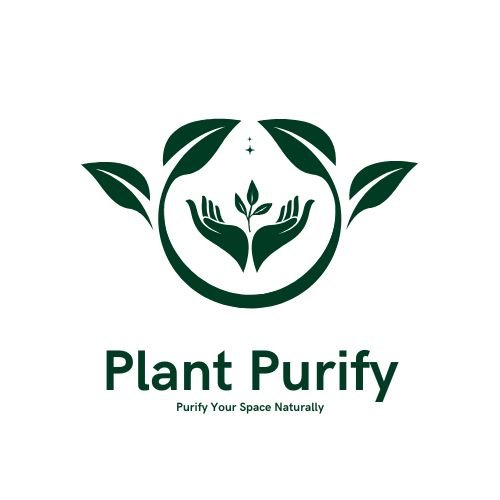While snake plants, peace lilies, and English ivy can purify your home's air, they're highly toxic to cats. Snake plants contain saponins that cause digestive issues, peace lilies have calcium oxalate crystals leading to severe mouth irritation, and English ivy's toxic compounds can trigger breathing problems. If you've got feline friends, you'll want to skip these common houseplants – but don't worry, there are plenty of cat-safe alternatives to keep your air clean.
What Makes Snake Plants Dangerous for Feline Friends

While snake plants effectively purify indoor air, their natural defense compounds pose significant risks to cats. These plants, also known as Mother-in-Law's Tongue, contain saponins throughout their leaves, stems, and roots.
These toxic compounds serve as the plant's defense mechanism against pests but can severely affect your cat's health if ingested.
When your cat chews on a snake plant, the saponins cause immediate irritation and inflammation in their digestive system. These compounds interfere with nutrient absorption and can enter the bloodstream, potentially destroying red blood cells. Watch for signs of pale or white gums, which may indicate anemia from saponin exposure.
You'll notice symptoms like vomiting, diarrhea, excessive drooling, and lethargy if your cat consumes any part of the plant.
Don't wait to see if symptoms improve – contact your veterinarian immediately if you suspect your cat has eaten a snake plant.
The Hidden Risks of Peace Lilies in Cat Households
Although peace lilies enhance indoor air quality, these common houseplants pack a dangerous punch for cats due to their calcium oxalate crystals.
If your cat nibbles on a peace lily, you'll notice immediate signs of distress including drooling, foaming at the mouth, and pawing at their face. The crystals are like tiny needle-like spikes that penetrate your cat's tissues when chewed. They may also experience vomiting, diarrhea, and difficulty swallowing.
While peace lily poisoning isn't usually fatal, it can lead to serious complications. In rare cases, your cat might develop airway swelling, breathing difficulties, or even seizures. The symptoms can persist for up to two weeks.
If you suspect your cat has ingested peace lily, don't wait – contact your vet immediately. They may recommend bringing your cat in for treatment, which could include IV fluids and supportive care to prevent dehydration.
Why English Ivy Should Stay Out of Your Cat's Environment

Despite its elegant appearance and air-purifying benefits, English ivy poses a serious threat to your cat's health through its toxic compounds, particularly triterpenoid saponins.
If your cat ingests or comes into contact with this plant, you'll notice symptoms like excessive drooling, vomiting, and breathing difficulties. The foliage contains higher concentrations of toxic polyacetylene compounds than the berries. The plant's sap can also cause skin irritation when your cat rubs against it.
To protect your feline friend, keep English ivy completely out of reach or in rooms your cat can't access. You can use pet deterrent sprays and offer cat-safe alternatives like cat grass to discourage exploration of toxic plants.
If you suspect your cat has been exposed to English ivy, don't wait – seek immediate veterinary care. While there's no specific antidote, prompt treatment with supportive care increases your cat's chances of full recovery.
Frequently Asked Questions
How Long Does It Take for Plant Poisoning Symptoms to Appear in Cats?
You'll notice poisoning symptoms in your cat within hours of ingestion, but they can be delayed for days. Early signs include vomiting and drooling, while severe symptoms like kidney damage develop later.
Can Cats Recover Naturally From Plant Poisoning Without Veterinary Intervention?
You shouldn't rely on natural recovery – it's rare and risky. While mild cases might improve, most plant poisonings require immediate veterinary care to prevent severe complications or fatal outcomes in your cat.
Do Artificial Versions of These Plants Pose Any Risks to Cats?
While artificial plants aren't toxic, they can still pose risks to your cats. Watch for choking hazards from loose parts, potential entanglement in wires, and dust accumulation that might cause respiratory issues.
Where Should I Position These Plants to Minimize Cat Exposure?
Place your plants on high shelves, in hanging baskets, or in closed-off rooms where your cats can't access them. You'll want to keep them away from windowsills and your cat's favorite spots.
Which Air-Purifying Plants Are Completely Safe Alternatives for Cat Owners?
You'll find Spider Plants, Boston Ferns, and Bamboo Palms are excellent safe choices. Prayer Plants and Baby Rubber Plants also purify your air effectively while keeping your cats completely safe.
In Summary
While you'll love these plants' air-cleaning abilities, you can't risk your cat's health. If you own these toxic varieties, consider moving them outdoors or to a sealed room your cat can't access. Better yet, replace them with cat-safe alternatives like Boston ferns, spider plants, or bamboo palms. Don't wait until your cat shows symptoms – take action now to create a safer space for your feline companion.





Leave a Reply